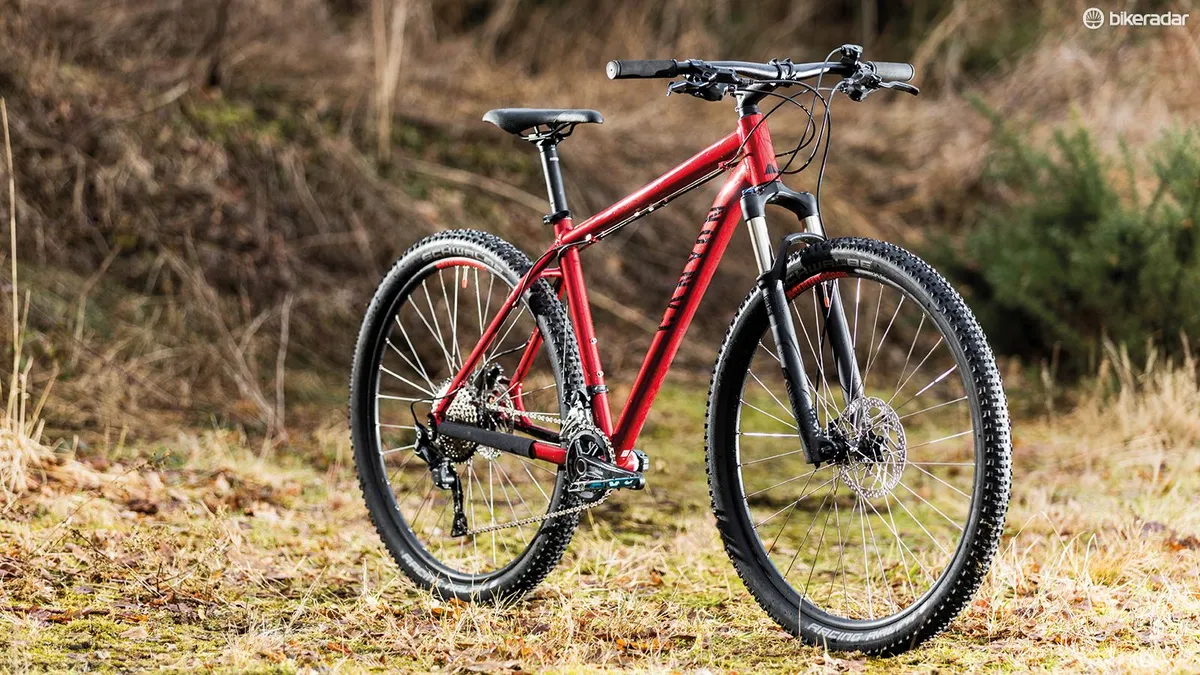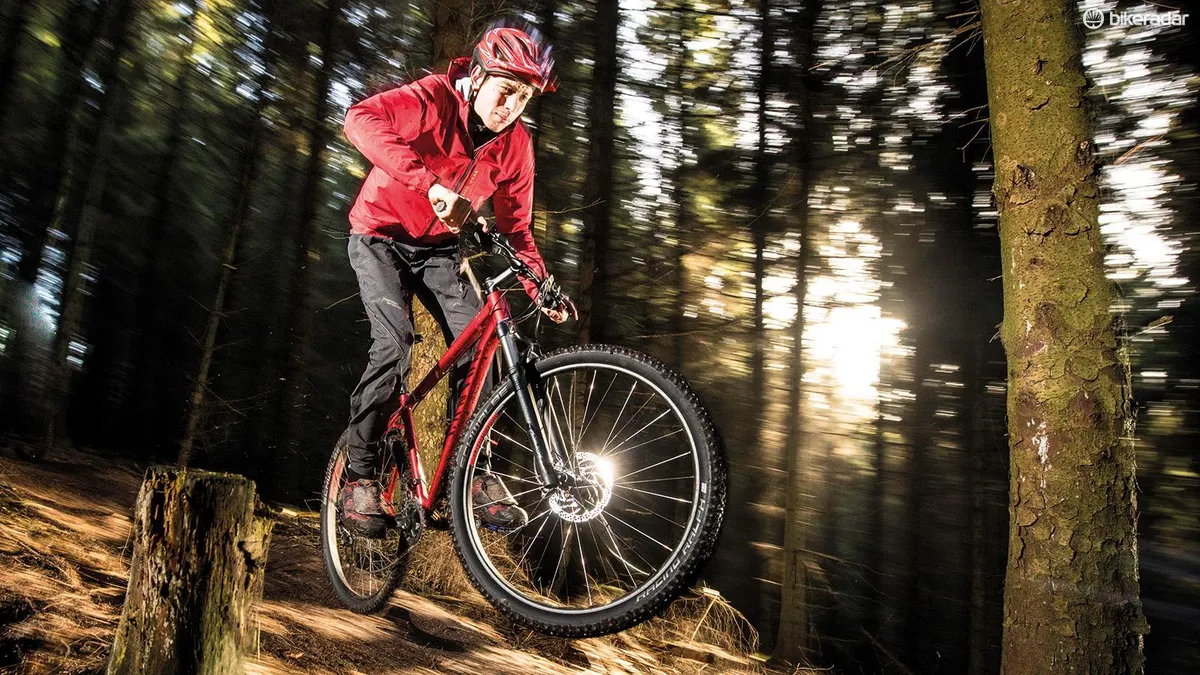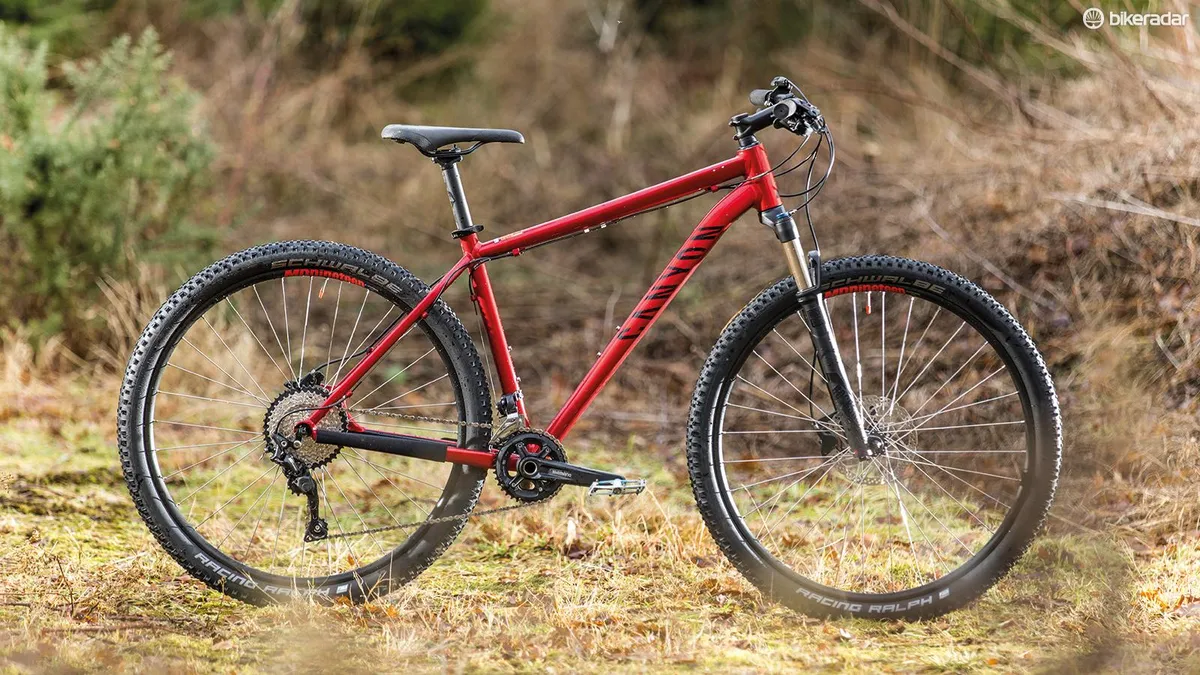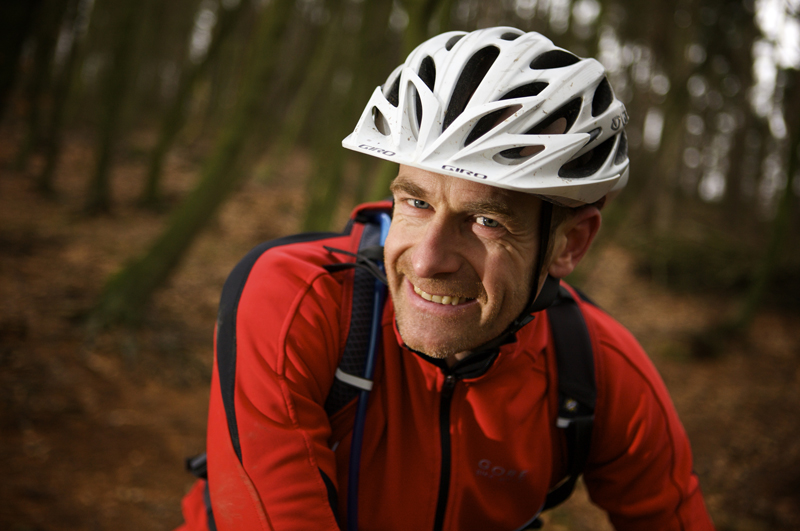Canyon has become a byword for value by taking distributors and bike shops out of the equation and shipping bikes direct to your door from Germany. The fact that the Grand Canyon looks decent but not dazzling for the price is a sign of just how aggressive the UK market is.
While it’s a sweet-riding bike for cross-country (XC) duties, the geometry and features are dated by current trail standards.
Canyon Grand Canyon AL 4.0 frame
Canyon doesn’t cut corners on quality and this frame is a looker, with tidy welding clear through the ‘lava red’ finish (black also available). Both main tubes taper and flatten as they head backwards to stop twist at the bottom bracket and allow some vertical flex ahead of the seat tube.
Subtly tapered A-frame chainstays lead to neat cowled dropouts for an old-school 135mm QR rear axle. The rear brake uses an ‘IS’ parallel mount, not the newer ‘post’ standard, and there’s no dropper post routing.
Geometry is similarly traditional and XC-orientated, with a 70-degree head angle, long 450mm chainstays and a very short 415mm reach (L).

Canyon Grand Canyon AL 4.0 kit
In classic XC style, a long stem (100mm) keeps the cockpit length reasonable and is combined with a narrow 720mm bar. Canyon supplies the slide-on Bracelet grips, which aren’t as secure as lock-ons in the wet.
The traditional theme continues with the Grand Canyon having a double crankset, which sits at the heart of a light-action 2x10 Shimano Deore transmission.
Brakes are also Deore, complete with a 180mm front rotor to boost power, and the ‘Centerlock’ rotors sit on ultra-durable, smooth-rolling Shimano hubs.
The rims are narrow, at 19mm, and the tiny tread of the Schwalbe Racing Ralph tyres is designed for speed, not rowdy-terrain control, but they combine to create a light and responsive wheelset that suits the character of this 29er well.
Canyon Grand Canyon AL 4.0 ride
If you want a traditional XC bike, then the Grand Canyon is a beaut. Physics is in its favour, because compared to similar bikes it's pretty light, with the lowest-weight wheels wrapped in semi-slick tyres.
This means it accelerates with enthusiasm and maintains speed easily. The 2x10 drivetrain gives more gear options than the 1x set-ups on the other bikes, once you’ve worked out how to juggle the closer-ratio cassette and double chainrings.
It also provides the highest top gear for maxing out your speed on smoother trails or road sections. While the head angle is steep and twitchy, the stability provided by the long stem means the Canyon stays on line with less nursing and nudging on power climbs. The long back end also makes looping out less likely if you’re clawing up a super-steep pitch.

What it lacks in modern features and geometry, the Grand Canyon makes up for with a really smooth and cultured ride feel. It glides smoothly over small rocks and roots, sustaining speed and delaying fatigue.
The air-sprung RockShox Recon fork is usefully active too, and you can lock it out for smooth stuff. Schwalbe’s ‘Performance’-grade tyres use a dual-compound tread and higher-TPI carcass than its ‘Active Line’ rubber for improved grip and glide.
Add a Selle Italia saddle for similarly comfy and mileage-friendly contact, and it’s a bike that loves a long, fast ride.
What the Canyon isn’t so fond of is steep downhill, techy or high-speed stuff. The long-stem cockpit can’t react quickly or sensitively enough to tweak lines and regain traction when the wheels slip, and the steep head angle means the steering has much less of a tendency to self-correct than with a slacker front end.
Although the back end is long, the overall wheelbase is very short, which reduces stability at speed. The QR wheel attachment erodes front-wheel accuracy and the 100mm of travel doesn’t go far when it comes to controlling bigger impacts. With no way to fit a dropper neatly either, it’s definitely more suited to the climbs than the descents.


